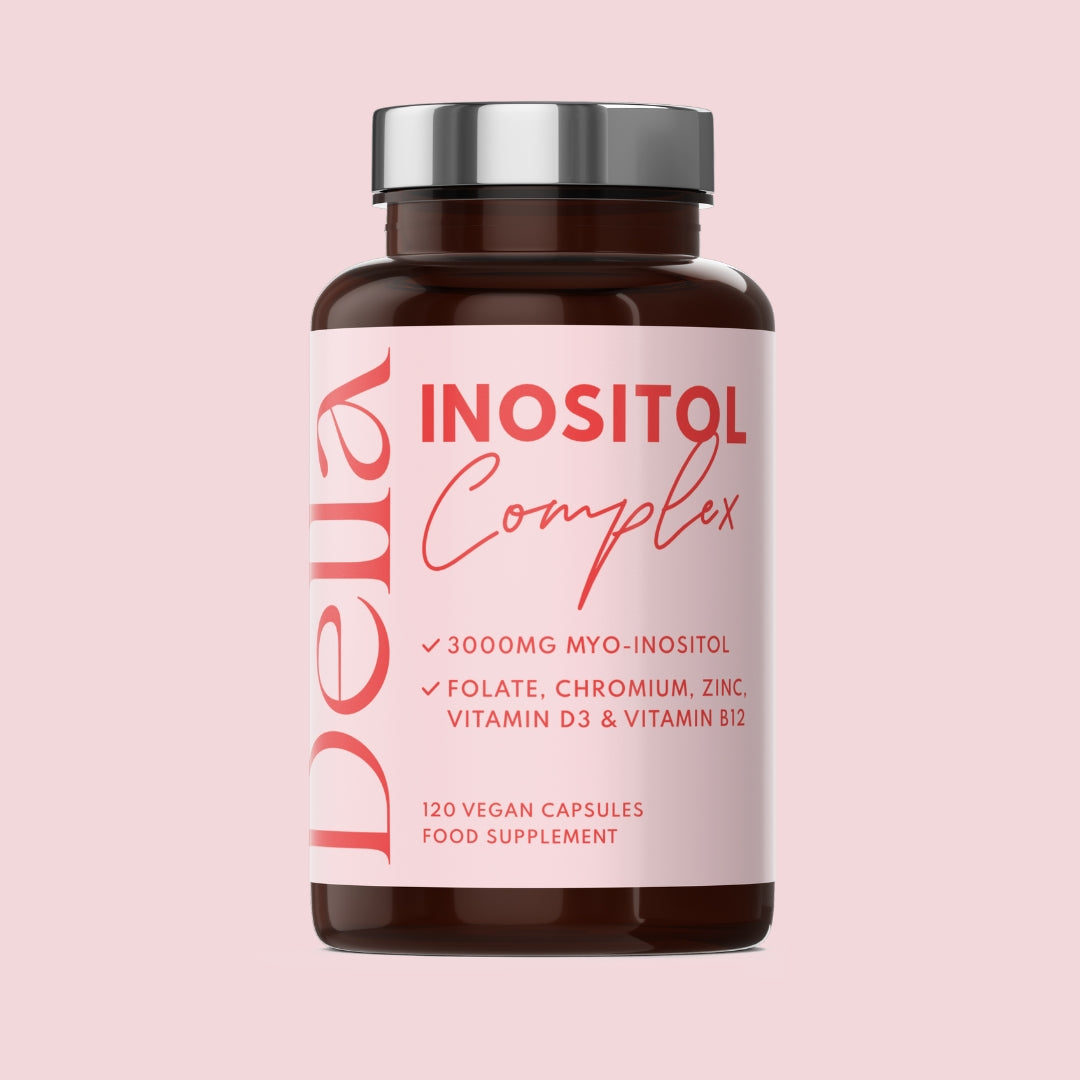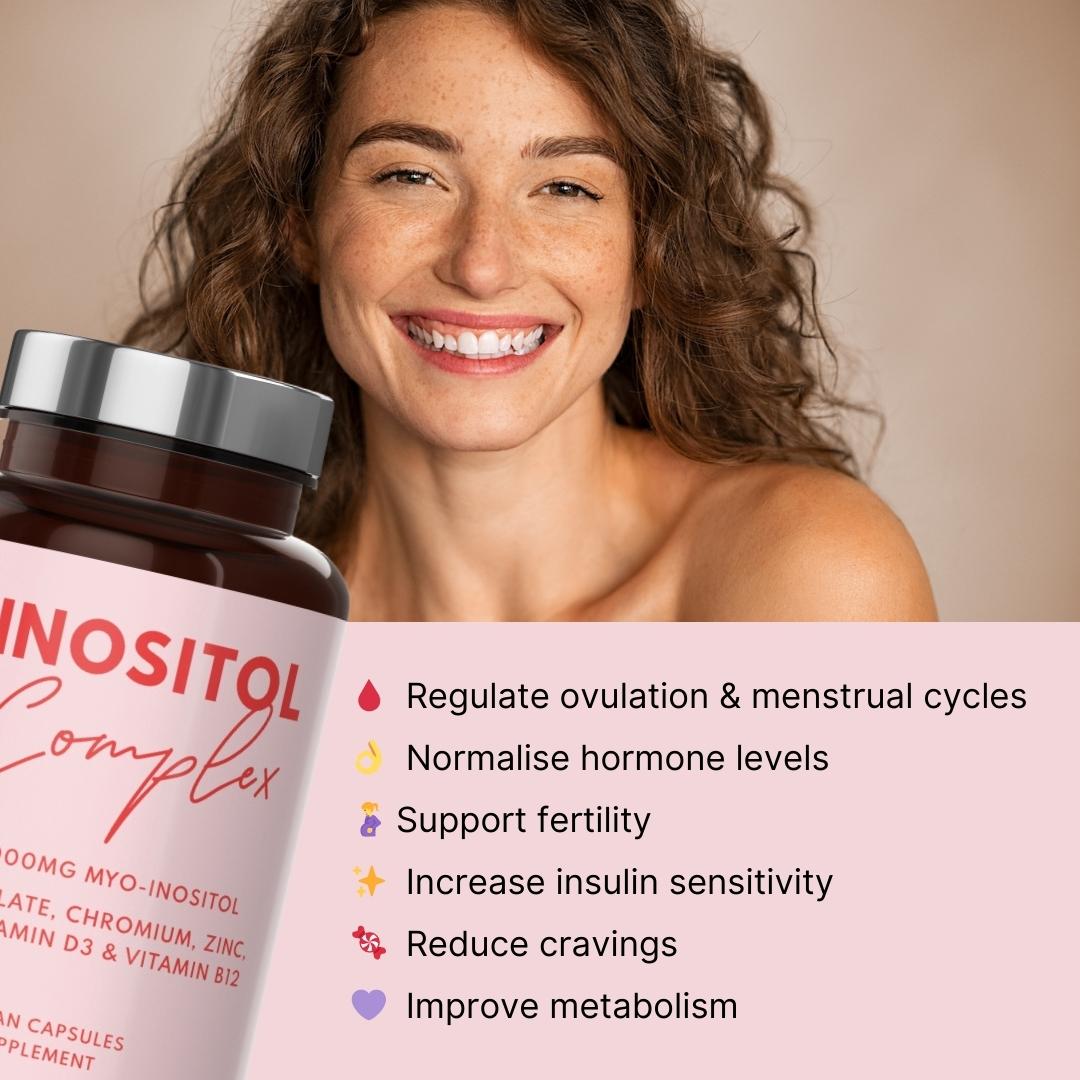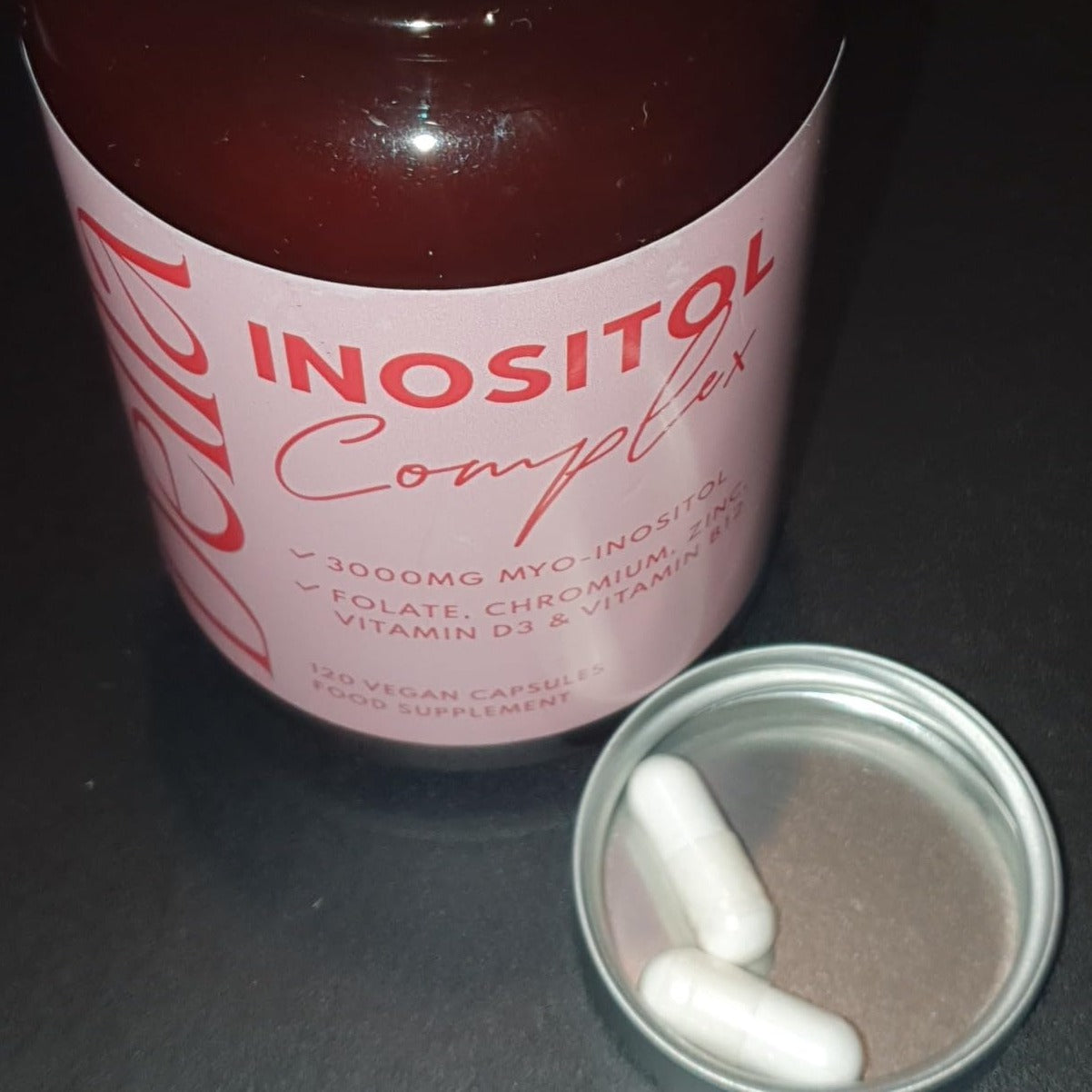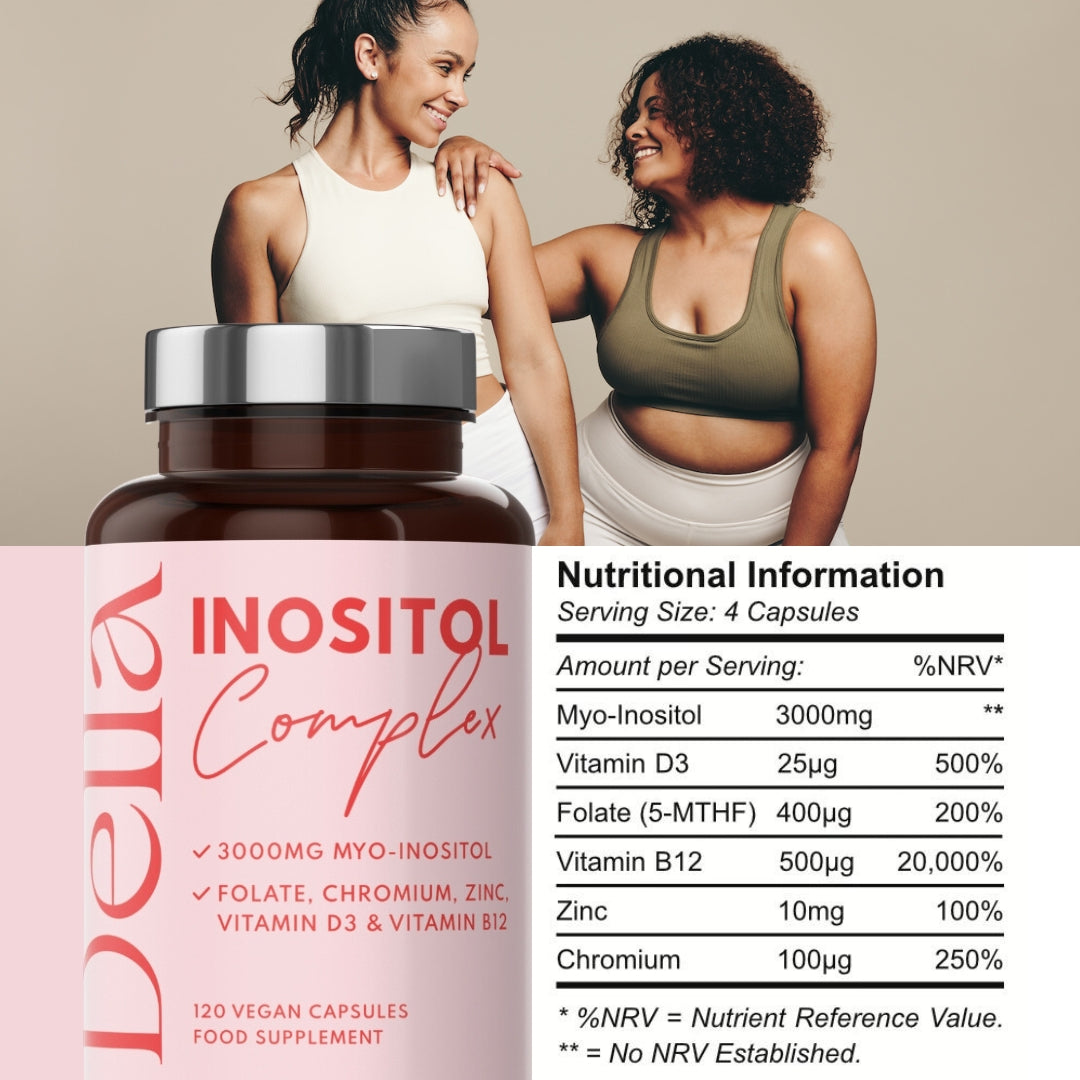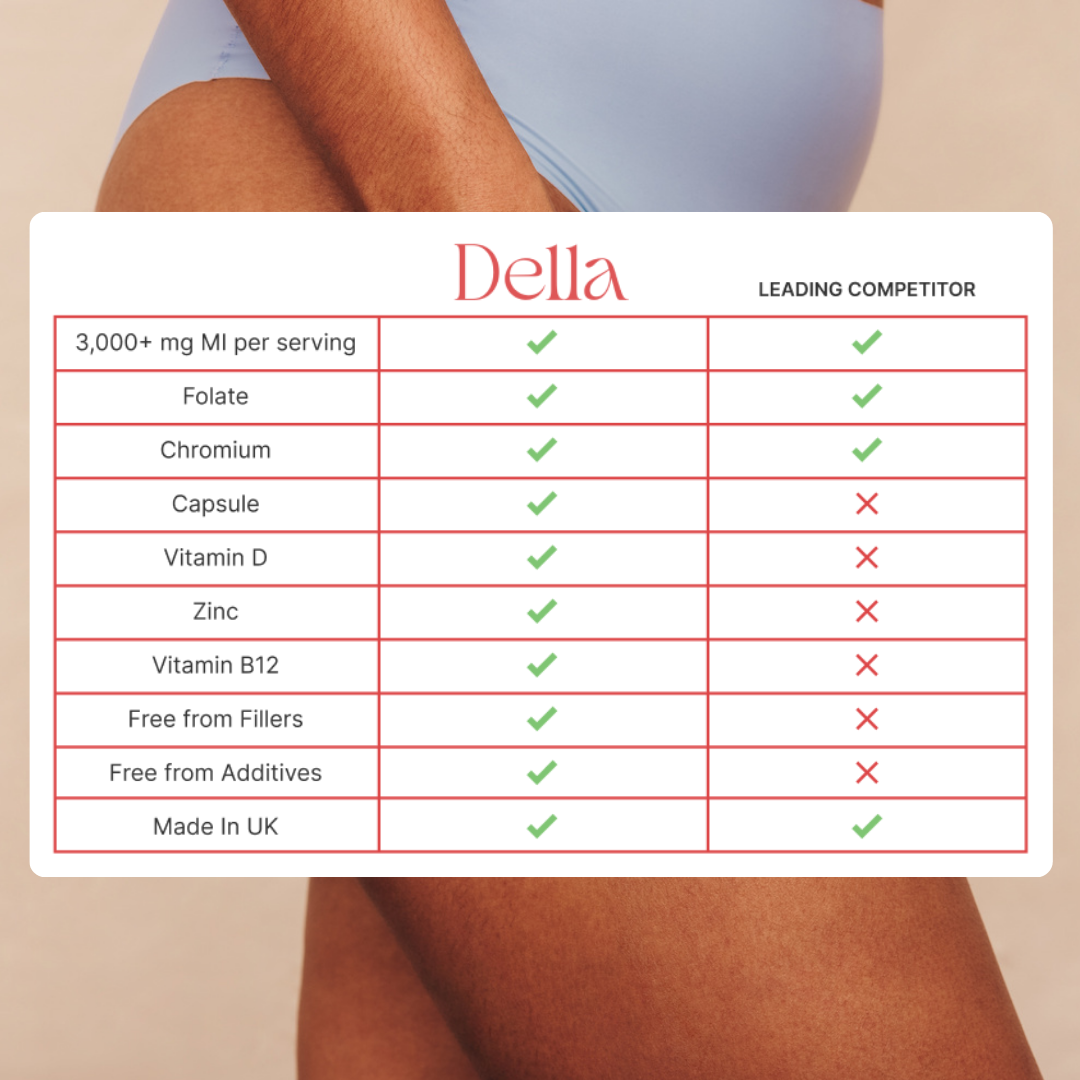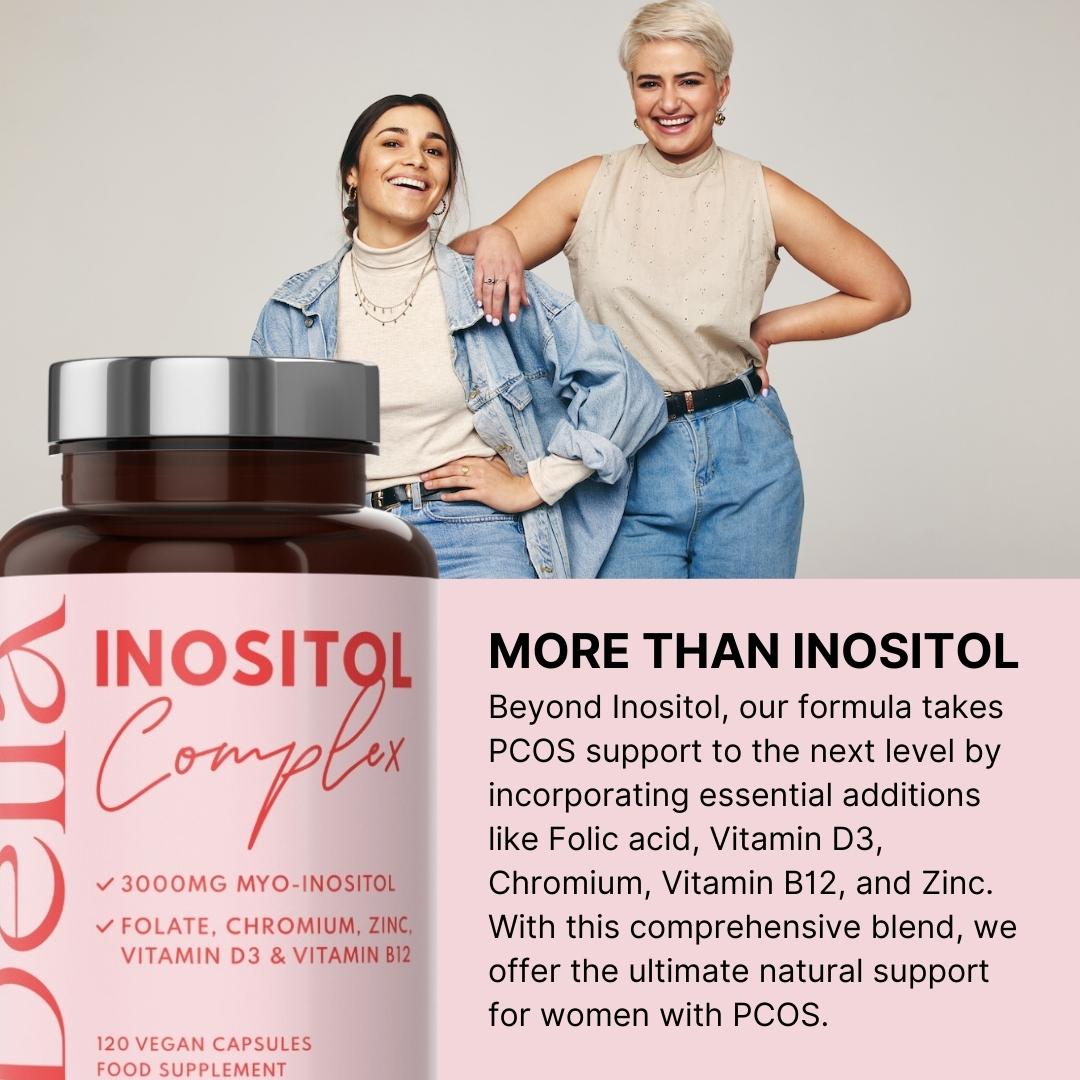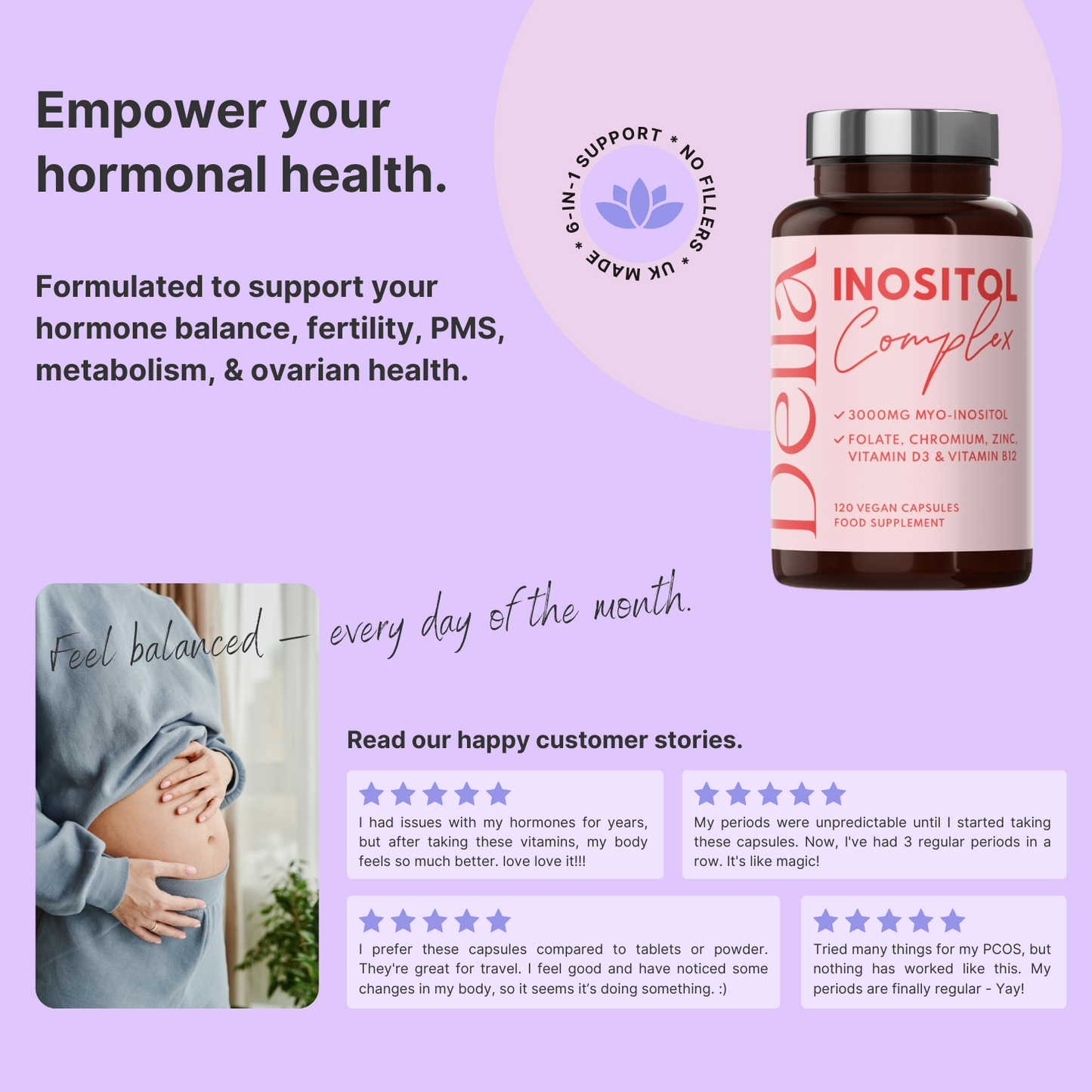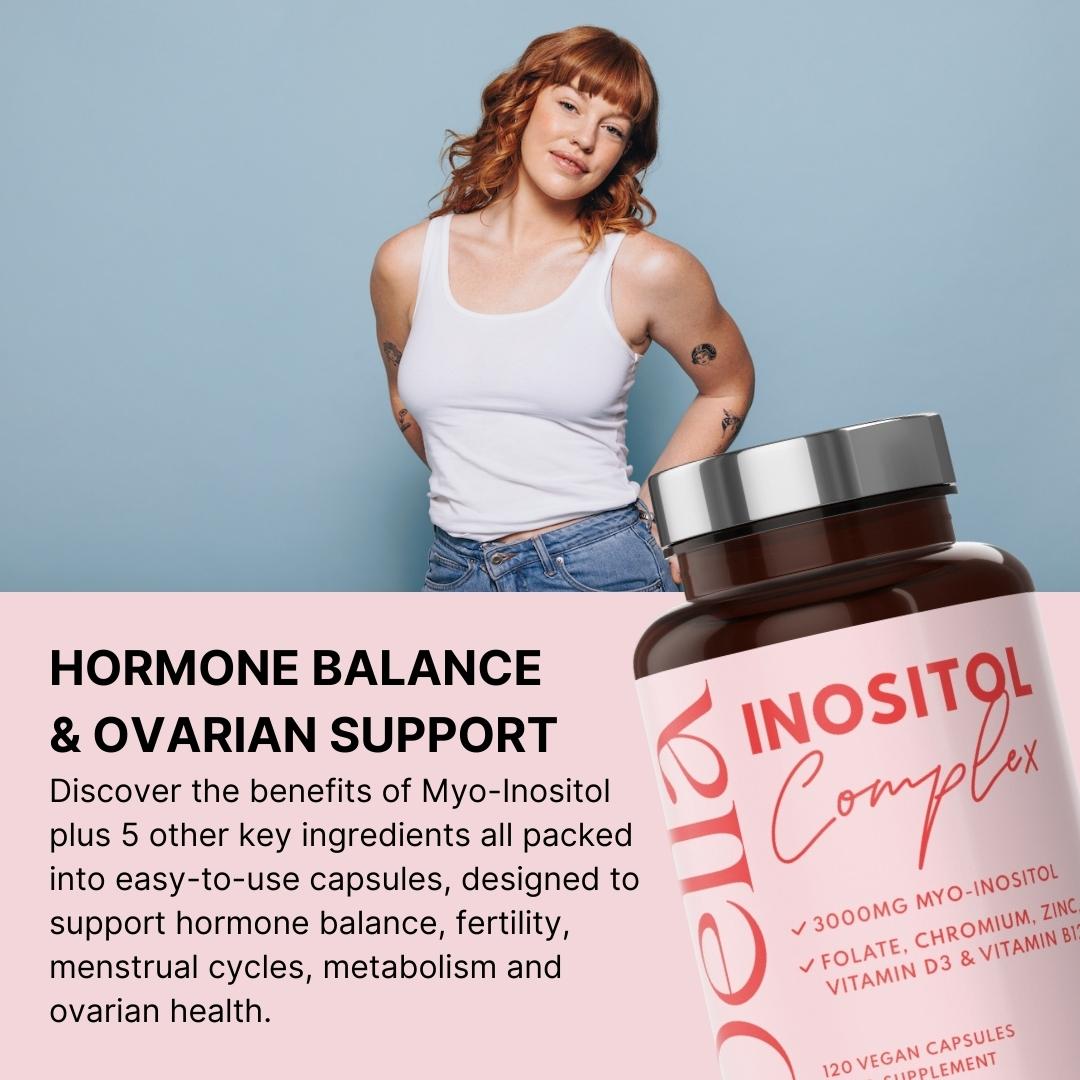Perhaps you’ve read about the different types of PCOS, and come across the term “Inflammatory PCOS”. In reality, PCOS isn’t actually classified in this way.
Instead, research suggests that PCOS is always closely associated with inflammation. Using blood tests, most studies have found that people with PCOS have higher levels of certain inflammatory markers than people without PCOS.
In short, there is a strong association between PCOS and chronic, low-grade inflammation. The low-grade inflammation that’s associated with PCOS is a risk factor for several health complications such as infertility, type 2 diabetes and heart disease, as well as symptoms like acne, hirsutism and hair loss.
Some people follow an anti-inflammatory diet to help manage their PCOS symptoms and reduce the inflammation in their bodies.

What is an anti-inflammatory diet?
The main principle behind an anti-inflammatory diet is to consume foods that have anti-inflammatory properties while avoiding or minimising foods that can promote inflammation.
Since each person's body reacts differently to various foods, discovering an anti-inflammatory diet that suits you may require some experimentation.
Nonetheless, certain foods generally tend to promote inflammation, while others typically help counteract it.
Here are some key components of an anti-inflammatory diet for PCOS:
- Whole, unprocessed foods: Emphasise whole foods such as fruits, vegetables, whole grains, legumes, and lean proteins. These foods are rich in vitamins, minerals, fibre, and antioxidants, which can help reduce inflammation.
- Omega-3 fatty acids: Include sources of omega-3 fatty acids, such as fatty fish (salmon, mackerel, sardines), flaxseeds, chia seeds, and walnuts. Omega-3 fatty acids have anti-inflammatory properties and can help balance hormones and reduce inflammation in the body.
- Healthy fats: Incorporate healthy fats like avocados, olive oil, and nuts. These fats contain monounsaturated fats and antioxidants that have anti-inflammatory effects.
- Colourful fruits and vegetables: Include a variety of colourful fruits and vegetables in your diet as they are rich in antioxidants, which can help reduce inflammation. Aim for a rainbow of colours to ensure a diverse intake of beneficial nutrients.
- Spices and herbs: Certain spices and herbs have potent anti-inflammatory properties. Turmeric, ginger, cinnamon, and garlic are examples of anti-inflammatory spices that can be incorporated into your meals.
- Limit refined sugars: Processed foods, sugary snacks, and beverages can contribute to inflammation and worsen PCOS symptoms. Try to minimise your intake of processed foods and opt for whole food alternatives.
- Manage carbohydrates: Focus on complex carbohydrates with a low glycemic index (GI), such as whole grains, legumes, and non-starchy vegetables. These foods have a gentler impact on blood sugar levels, which is important for managing insulin resistance associated with PCOS.
Anti-inflammatory diet and Insulin Resistance
There is a significant connection between inflammation and insulin resistance, as inflammation and insulin resistance often occur together.
Inflammation plays a role in the development of insulin resistance. Chronic low-grade inflammation in the body can disrupt the normal signalling pathways of insulin and impair insulin sensitivity.
On the other hand, insulin resistance itself can contribute to inflammation. When insulin resistance occurs, it can lead to an increase in circulating insulin levels. Insulin can stimulate the production of inflammatory molecules and trigger an inflammatory response.
This chronic low-grade inflammation further exacerbates insulin resistance, creating a vicious cycle.
That is why reducing inflammation could improve insulin sensitivity and help manage insulin resistance.
Regular physical activity, stress management, and maintaining a healthy weight are also important factors in reducing inflammation and improving insulin sensitivity. There are also a few supplements like Myo-Inositol that have shown to help improve insulin resistance.
It's important to note that an anti-inflammatory diet is not a cure for PCOS, but it may help reduce inflammation, manage symptoms, and improve overall well-being. It is advisable to consult with a healthcare professional or a registered dietitian who specialises in PCOS to tailor an eating plan that suits your individual needs and takes into account any specific dietary considerations or restrictions you may have.
FAQ - Unlocking the Power of an Anti-Inflammatory Diet For Women With PCOS
What is PCOS and its association with inflammation?
PCOS (Polycystic Ovary Syndrome) is a condition closely associated with inflammation. Research indicates that people with PCOS often have higher levels of inflammatory markers in their blood compared to those without PCOS. This chronic, low-grade inflammation can lead to various health complications and symptoms associated with PCOS.
What is an anti-inflammatory diet?
An anti-inflammatory diet involves consuming foods that have anti-inflammatory properties while minimising or avoiding foods that promote inflammation. It aims to reduce inflammation in the body, which is a risk factor for PCOS-related health issues and symptoms.
What are some key components of an anti-inflammatory diet for PCOS?
Some key components of an anti-inflammatory diet for PCOS include emphasising whole, unprocessed foods such as fruits, vegetables, whole grains, legumes, and lean proteins. Additionally, incorporating omega-3 fatty acids from sources like fatty fish, flaxseeds, chia seeds, and walnuts, as well as healthy fats from avocados, olive oil, and nuts, can be beneficial. Colourful fruits and vegetables rich in antioxidants, spices and herbs with anti-inflammatory properties, and managing carbohydrate intake are also important.
How do omega-3 fatty acids help with PCOS and inflammation?
Omega-3 fatty acids have anti-inflammatory properties and can help balance hormones, reduce inflammation, and improve symptoms associated with PCOS. Sources of omega-3 fatty acids include fatty fish, flaxseeds, chia seeds, and walnuts.
Can an anti-inflammatory diet help with insulin resistance in PCOS?
Yes, an anti-inflammatory diet can help manage insulin resistance in PCOS. Inflammation and insulin resistance often occur together, and chronic low-grade inflammation can disrupt insulin signalling pathways and impair insulin sensitivity. By reducing inflammation, insulin sensitivity may improve, thus helping manage insulin resistance.
How does insulin resistance contribute to inflammation in PCOS?
Insulin resistance can contribute to inflammation in PCOS. When insulin resistance occurs, it can lead to elevated insulin levels, which can stimulate the production of inflammatory molecules and trigger an inflammatory response. This chronic low-grade inflammation further worsens insulin resistance, creating a cycle.
Can an anti-inflammatory diet cure PCOS?
No, an anti-inflammatory diet cannot cure PCOS. However, it may help reduce inflammation, manage symptoms, and improve overall well-being in individuals with PCOS. It's important to consult with a healthcare professional or registered dietitian specialising in PCOS to tailor an eating plan that suits individual needs.
What other factors, besides an anti-inflammatory diet, can help reduce inflammation and improve insulin sensitivity in PCOS?
Regular physical activity, stress management, and maintaining a healthy weight are important factors in reducing inflammation and improving insulin sensitivity in PCOS. Certain supplements, such as Myo-Inositol, have also shown promise in improving insulin resistance.
Is it necessary to consult a healthcare professional or registered dietitian for an anti-inflammatory diet plan?
Yes, it is advisable to consult with a healthcare professional or a registered dietitian who specialises in PCOS. They can help tailor an eating plan that suits your individual needs, takes into account any specific dietary considerations or restrictions you may have, and provide guidance throughout your PCOS management journey.
Can an anti-inflammatory diet benefit women without PCOS?
Yes, an anti-inflammatory diet can benefit women without PCOS as well. It promotes overall health by reducing inflammation, which is associated with various chronic conditions. However, it is important to consider individual health needs and consult a healthcare professional before making any significant dietary changes.



